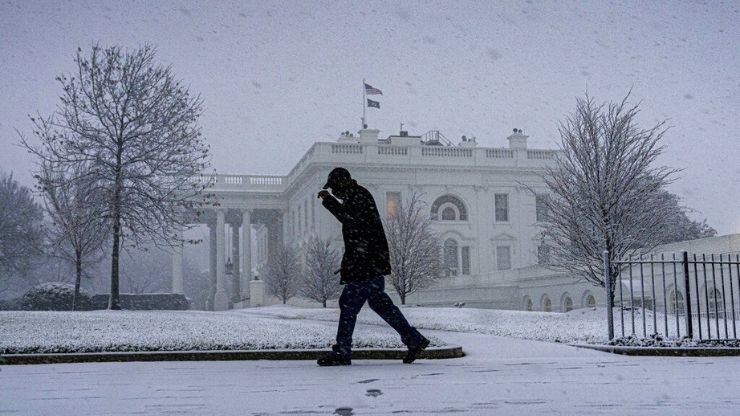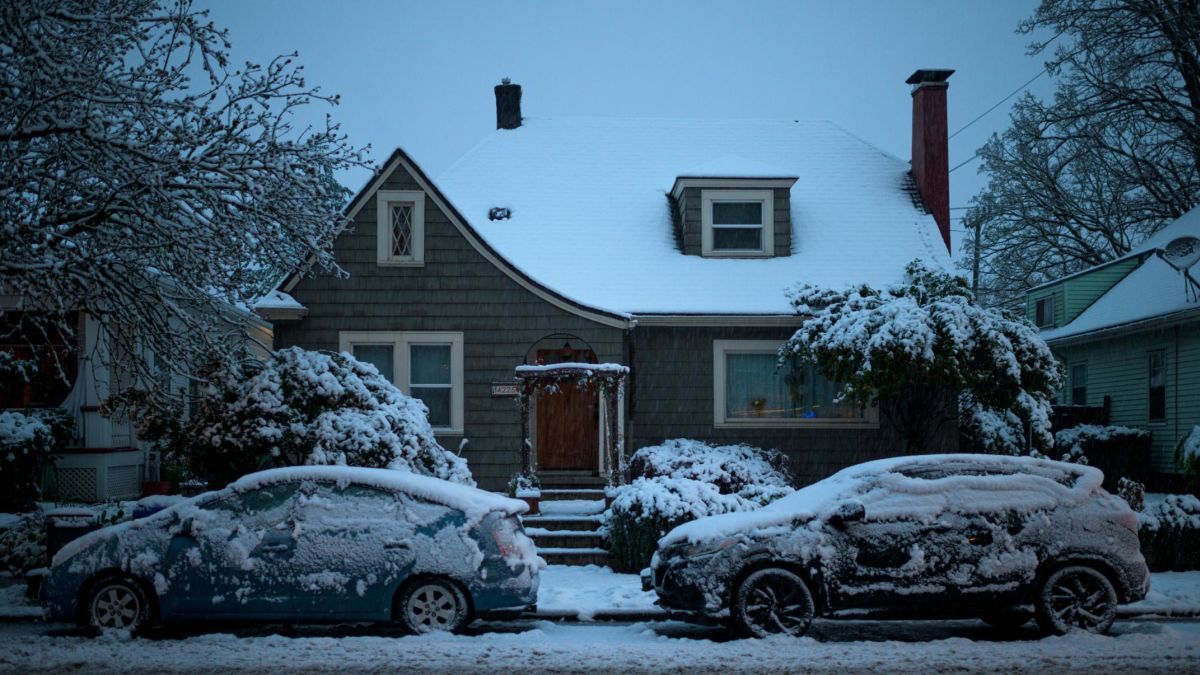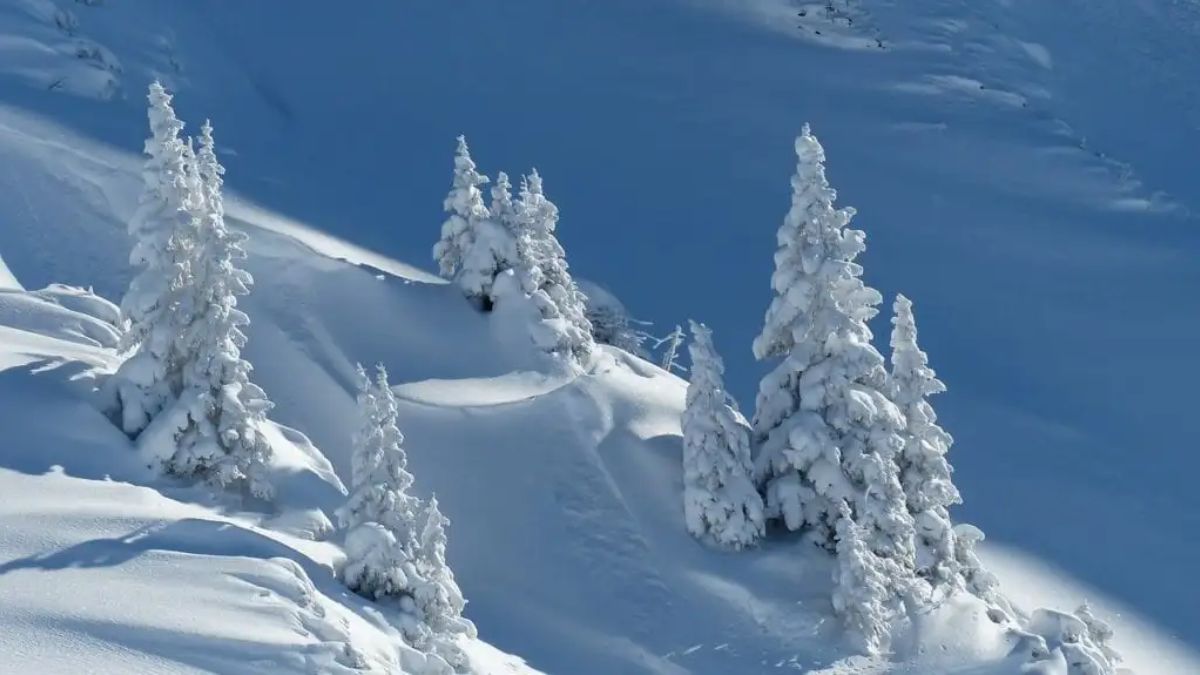No, it does not snow in Jacksonville, Florida. Snowfall in Jacksonville is extremely rare due to its subtropical climate and geographical location. The city experiences mild winters with average temperatures in the mid-60s Fahrenheit, which are not conducive to snow formation.
While there have been a few recorded instances of snowfall in Jacksonville’s history, they are considered outliers and not representative of the city’s typical weather patterns. So, if you are hoping for a snowy winter experience, you may need to visit a different location within or beyond Florida.
When it comes to envisioning a winter wonderland, Jacksonville, Florida, may not be the first place that comes to mind. Known for its sunny beaches, warm temperatures, and mild climate, Jacksonville is a city that typically experiences a subtropical climate.
However, many people wonder if snowfall is a possibility in this popular coastal destination. In this article, we will explore the question, “Does it snow in Jacksonville, FL?” and delve into the climatic conditions that influence snowfall in the region.
Location Overview of Jacksonville
Jacksonville, often referred to as Jax, is the largest city by land area in the contiguous United States. It is situated in the northeastern corner of the state of Florida, along the Atlantic coast.
Jacksonville is located in Duval County, northeastern Florida, at the mouth of the St. Johns River. It is approximately 25 miles south of the border with Georgia. The city stretches over 840 square miles, encompassing diverse landscapes, including urban areas, coastal regions, and scenic rivers.
As a coastal city, Jacksonville boasts a stunning coastline along the Atlantic Ocean. Its beaches, including Jacksonville Beach, Neptune Beach, and Atlantic Beach, attract residents and visitors alike, offering swimming, sunbathing, surfing, and other water sports opportunities.
The St. Johns River is a prominent feature of Jacksonville, meandering through the heart of the city. This wide and navigable river serves as a hub for recreational activities such as boating, fishing, and kayaking. The riverfront area is also popular for attractions, including parks, restaurants, and entertainment venues.
Jacksonville benefits from a well-developed transportation network and also serves by Jacksonville International Airport (JAX), which offers domestic and international flights. It is also connected by major highways, including Interstate 95 and Interstate 10, facilitating easy access to other cities in Florida and neighboring states.
Jacksonville is a vibrant and geographically diverse city with a beautiful coastline, a scenic river, and an array of cultural and recreational opportunities. Its unique location and pleasant climate make it an attractive destination for residents and visitors looking to enjoy a mix of urban amenities and outdoor adventures.
Geography and Climate of Jacksonville
The geographical factors of Jacksonville significantly impact the occurrence of snowfall in the area. Located at approximately 30 degrees north latitude, Jacksonville’s subtropical position contributes to its mild climate and makes snowfall rare.
Additionally, its proximity to the Atlantic Ocean influences the city’s weather patterns. The maritime air masses from the ocean have moderate temperatures, making it difficult for the necessary conditions for snow formation to occur.
These geographical influences, including latitude and the presence of nearby bodies of water, contribute to the infrequent snowfall experienced in Jacksonville. The city experiences a subtropical climate characterized by hot and humid summers and mild winters.
Summers are long and typically last from May to September, with temperatures often reaching the 90s Fahrenheit. Winters are mild, with average temperatures in the 60s Fahrenheit, making it a favorable destination for outdoor activities year-round.
Historical Snowfall Record of Jacksonville
To gain further insights into the occurrence of snow in Jacksonville, it is helpful to examine historical data. There have been instances where temperatures have dropped below freezing, paving the way for a potential snow event. Nevertheless, such occurrences are infrequent and typically short-lived.
Over the past century, Jacksonville has experienced snowfall on rare occasions. According to the National Weather Service, the most recent measurable snowfall in Jacksonville occurred on December 23, 1989, when the city received 1 inch of snow.
Prior to that, notable snow events were recorded in 1973, 1958, and 1899. These occurrences are regarded as anomalies rather than representative of the city’s typical weather patterns.
Winter Season & Snowfall Pattern of Jacksonville
Jacksonville experiences a mild winter season with minimal snowfall chances. Due to its subtropical climate and location near the Atlantic Ocean, snow is a rare occurrence in the city.
Winter temperatures typically range from the mid-60s to low 70s Fahrenheit, with occasional dips below freezing during colder spells. While there have been a few recorded instances of snowfall in the city’s history, it remains an infrequent and minor weather event.
Instead of snow, Jacksonville residents and visitors enjoy a pleasant winter with mostly sunny skies and mild conditions.
Locations to Enjoy Snow Near Jacksonville
While snowfall is rare in Jacksonville, FL, there are several locations near the city where you can experience the magic of snow during the winter season. Here are some options:
- North Georgia Mountains
Located a few hours north of Jacksonville, the North Georgia Mountains offer picturesque winter scenery and opportunities for snow activities. Places like Helen, Blue Ridge, and Dahlonega often see snowfall during winter, providing a winter wonderland experience with snow-covered landscapes and outdoor recreational activities.
- Great Smoky Mountains
Located further northwest, the Great Smoky Mountains National Park, which spans Tennessee and North Carolina, is another option for enjoying snow near Jacksonville. The higher elevations of the park often receive significant snowfall, creating a winter paradise for hiking, snowshoeing, and even cross-country skiing.
- North Carolina Mountains
The mountains of North Carolina, including areas such as Boone, Blowing Rock, and Asheville, are within driving distance of Jacksonville. These regions are known for their beautiful winter scenery and occasional snowfall.
- Florida Ski Resorts
While Florida is not typically associated with skiing, there are a couple of ski resorts in the state that provide artificial snow for skiing and snowboarding. Places like Snowcat Ridge in Dade City and WinterClub Indoor Ski & Snowboard in Orlando offer snow activities, even if it’s not the natural snow you might find in colder regions.
Remember that snowfall in these locations is still dependent on weather conditions, and the amount of snow can vary from year to year. It is always recommended to check weather forecasts and local conditions before planning a trip to enjoy snow near Jacksonville.
Factors Influencing Snowfall
Several factors influence the limited occurrence of snowfall in Jacksonville, FL. The city’s subtropical climate, characterized by mild winters and warm temperatures, is a significant factor.
Jacksonville’s latitude around 30 degrees north contributes to the rarity of snow events. The city’s proximity to the Atlantic Ocean also plays a role, as maritime air masses from the ocean bring in warmer and moister conditions that are not conducive to snow formation.
These geographical factors, including climate, latitude, and proximity to bodies of water, combine to make snowfall a rare and infrequent phenomenon in Jacksonville.
Conclusion
Snowfall is a rare occurrence in Jacksonville, Florida. The city’s subtropical climate, influenced by its latitude and geographical location, typically prevents the necessary conditions for snow formation.
While there have been a few recorded instances of snowfall in the city’s history, these events are considered outliers and not representative of the norm. So, if you dream of a white Christmas or want to engage in snow-related activities, you may need to venture to a different destination within or beyond Florida.
With its sunny skies and mild winters, Jacksonville offers a different kind of holiday experience, focusing on its beautiful beaches, vibrant culture, and abundant outdoor attractions.




